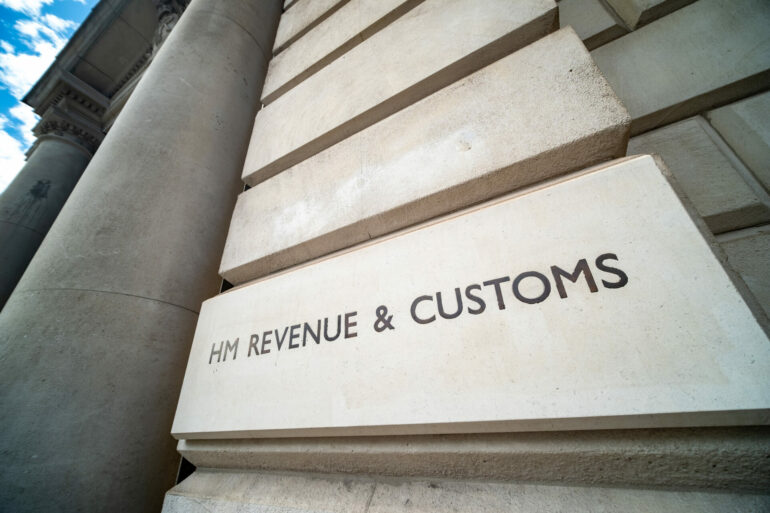Inheritance tax receipts (IHT) increased to £7.5bn from March 2023 to April 2024, the highest value ever recorded, the latest figures from HM Revenue and Customs (HMRC) have revealed.
This figure marked a £400m increase from the same period in the previous tax year and continues an upward trend over the past two decades.
While only 4% of estates were liable to pay IHT, the IFS estimates that the proportion of deaths resulting in inheritance tax is set to grow to over 7% by 2032–33.
The number of people affected by inheritance tax will be still larger. By 2032–33, they predict that one in eight people will have inheritance tax due either on their death or their spouse or civil partner’s death.
Nicholas Hyett, investment manager at Wealth Club, said: “It may only be paid by a small minority of taxpayers, but for those picking up the death tax tab, the bills are eye-watering.
“And it’s not just the wealthiest families that are being dragged over the threshold for inheritance tax. Increasing house prices, coupled with threshold freezes, mean more families are getting caught out by this most hated of taxes despite their quality of living remains unchanged.
“In the last six months the government has faced increasing calls to abolish the tax altogether, or at least to introduce radical reforms. Evidence from countries such as Sweden and Australia suggests reform could have positives aside from endearing politicians to voters.
“Abolishing inheritance tax has been linked with a decline in the number of businesses relocating overseas, and an increase in the number of wealthy individuals choosing to move to the country.”
He continued: “In the meantime, the good news is that there are still lots of legitimate ways for individuals in the UK to pass on money free of inheritance tax.”
Laura Hayward, tax partner at Evelyn Partners, added: “This record IHT haul for the Treasury is hardly surprising given the quite purposeful freezing of the tax-free allowance since as far back as 2009.
“The average UK house price alone has increased by approximately 82.7% since then.
“With no end to the freeze in nil-rate bands in sight there will be an escalation in IHT liabilities, if rules remain the same – not least because there is a massive transfer of wealth in the offing in the next couple of decades.
“Research shows that the older generations have as much as £2.6tn of equity tied up in their homes, which the next generation or the one after are set to inherit.
“The Office for Budget Responsibility itself noted last month that IHT receipts are set to hit £9.7bn in 2028/29, which will be 0.30% of GDP – twice the 0.15% it was in 2009 when nominal receipts totalled £2.4bn.
“This is ‘mainly due to rises in asset prices… The rise also reflects significant fiscal drag as the IHT threshold has remained at £325,000 since 2009’.”
She continued: “Even without an exceptional transfer of wealth, more estates and more assets in each liable estate are being dragged over the threshold at which IHT kicks in as the value of financial assets and property increases.
“The modest property downturn of the last year or so, which missed some parts of the UK entirely, seems to be over – so with the residential nil-rate band also frozen at £175,000, the trend of families or individuals with modest levels of wealth mostly held in property being subject to this 40% tax will continue.
“Against this background, the crackdown on IHT exemptions suggested by the IFS last week would be an unwelcome hit to bereaved families.
“The IFS points towards ‘loopholes’ like business property relief that could potentially raise £2bn for the Treasury if ‘closed’ – but one person’s loophole is another’s legitimate exemption.
“It isn’t the so-called boomer generation, wealthy or otherwise, who will foot the IHT bill on their estates – it’s their potentially struggling children and grandchildren who could be parted from a big chunk of the hard-earned family savings.
“Any future government tempted to fill gaps in the public finances by increasing the IHT burden further will have to reckon with the deep-seated aversion that most households have towards the imposition of death duties.”
Further reaction:
Nick Henshaw, head of intermediary distribution at Wesleyan:
“It’s certainly true that ever more families can expect to be caught in the Inheritance Tax net as the value of their estates continues to grow and the £325,000 threshold remains frozen.
“Today’s data will be sharpening some clients’ minds to the threat they may face, and it’s an opportunity for advisers to once again show their value in helping them manage and mitigate IHT risk – whether that’s through avenues like trusts, or pension funding.
“It’s also an issue that is likely to remain on the political agenda. Whatever potential reform or changes are suggested in the months ahead, advisers will have an important role to play in helping clients cut through the noise ultimately keep their strategies, and focus, on likelihoods and the long-term view.”




